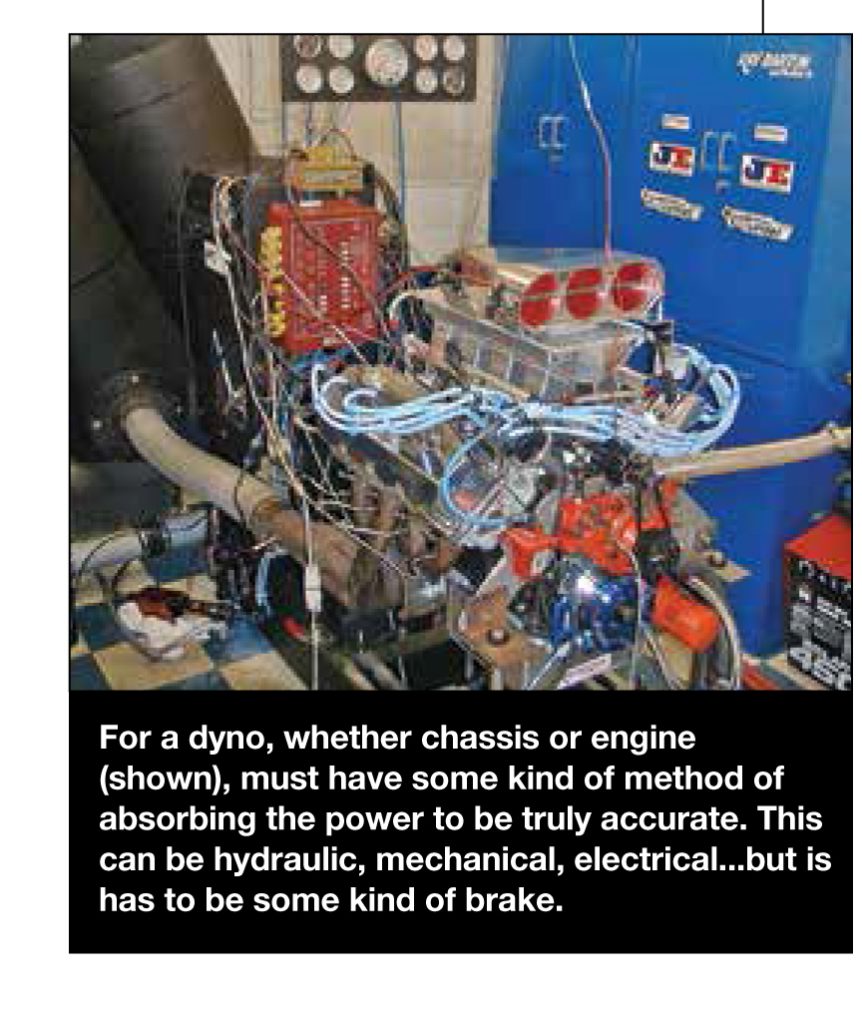Power To The People
Would you be kind enough to define
horsepower? For example: Brake,
developed, SAE or “Advertised.” In many
of the older Mopars, we see anywhere from
101 and on up to as much as 425. Now we
have cars with as much as 700 plus. Is that
actual or developed at peak RPM?
One other question: How did the older
car manufacturers (engine) arrive at their
“advertised” horsepower before the
advent of dynamometers?
Horsepower is just a calculated number,
it is never measured directly. Simplified:
Torque X RPM = HP (divide the product
by 5252 for the exact number). The RPM
where the product of HP and torque is
highest is your “peak power RPM”. They
always, obviously, will advertise the peak
number, that hasn’t changed.
There were several SAE standards for
HP calculation (and torque measurement).
“Back in the day”, every trick in the
book was used to bring the number up,
the maximum was “Cold bare gross”.
Deep oil pans, zero restriction exhaust,
no air cleaner, ideal air entrance, no
“accessories” (like a mechanical fuel
pump, fan and water pump, alternator,
etc.) helped them get the number. And
if that didn’t do it, there was always
the marketing guys ready to make
“adjustments”. Here’s an example: Do
you really think that a 318 2Bbl poly made
only 5 HP less that a 6,500RPM capable
2734, LA wedge heads, high compression,
cam, decent AFB, etc? If so, I’ve got a
bridge I’d like to sell you!
Today, HP numbers, while still
measured at the flywheel, are
“as installed”, and are always
witnessed by an engineer from a
competing car manufacturer. BS is
banished!
Dynos (chassis and “engine”)
have been around since at
least the late 1800s. Reliable
ones always have a brake (load
absorption); inertiatype dynos
(Dynojet) are useful for some
tuning and dragstrip correlation
work, but are never truly accurate.
EG: Put a lightweight flywheel and
clutch in a car and run it on the
Dynojet, the reported HP numbers
will pick up, even though there
has obviously been no change.
Conversely though, a car so
equipped will likely be quicker
down the quarter mile.


